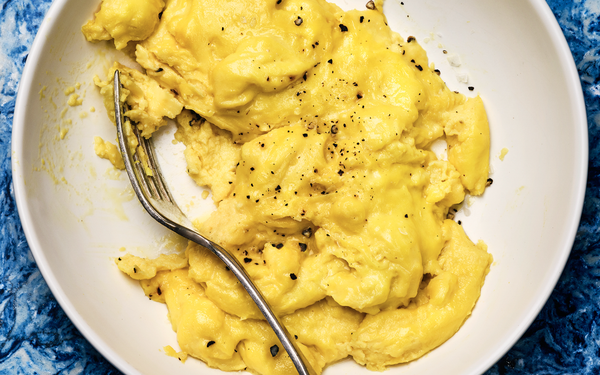 Photo credit: Just Egg
Photo credit: Just EggEgg
lovers are facing a perfect storm of rising prices and dwindling supplies, prompting many to explore alternatives like Just Egg, a mung-bean–based substitute that is quickly gaining traction.
Recent data shows that U.S. egg prices reached $7.46 per dozen last month, more than double last year’s $2.94, as production challenges and disease outbreaks take their toll.
According to the U.S. Department of Agriculture, egg-laying flock inventories have declined by 2%, with overall egg production down 1%. The situation has been
exacerbated by outbreaks of highly pathogenic avian influenza (HPAI), which led to the depopulation of 13.2 million birds in December 2024 and has continued into the first six weeks of 2025.
As traditional egg supplies wane, consumers are adapting. “Consumers are adjusting to soaring prices by reducing egg purchases or seeking alternatives,”
reports AgDaily. “Grocery stores report declining sales, while restaurants and food manufacturers are modifying recipes to use fewer eggs or switching to egg substitutes. Backyard poultry
keeping is also making a comeback as individuals look for a more reliable egg supply.”
advertisement
advertisement
Shoppers at many supermarkets -- including Trader Joe’s -- are facing purchase limits, and
both restaurants and food manufacturers are adjusting recipes to rely less on eggs, and sometimes raising prices. Amid these challenges, Just Egg has reported an extraordinary increase in sales,
growing five times faster than at the same time last year. Remarkably, 91% of its customers are neither vegan nor vegetarian, suggesting that practical concerns over price and availability are driving
the shift.
That’s working out well for Eat Just, the Appleton, Minnesota-based company that makes Just Egg. “Chicken eggs are harder to find, more expensive, and less reliable than
ever before,” said Joshua Tetrick, co-founder and CEO, in a recent announcement. “Americans are shifting how they buy eggs, and we’re here to make sure they have an option
that’s better for them and the planet.”
The crisis has also benefited organic eggs since most of the loss has happened in “caged and cage-free large-scale and crowded
conditions, which tend to allow the disease to spread quickly, causing major shortages,” says Phyllis Rothschild, CMO of Pete & Gerry’s, which only markets free-range, organic, and
pasture-raised hens. “Because the overall egg supply has decreased so significantly due to the disease, we’ve seen an enormous increase in demand for our Pete & Gerry’s and
Nellie’s products,” she tells CPG Insider via email. With a 15-state network of 300 family farms, the company has “a steadier, more reliable supply of eggs, and a more
stable price at the shelf for the shopper, not to mention the high-quality nutrition that sets our brands apart from commodity providers.”
She says the company has stepped up its
“egg-ucation” efforts as well, helping consumers make sense of the fast-changing market.
While the rise of plant-based alternatives is gathering steam, traditional egg advocates
are not standing idly by. The American Egg Board emphasizes the longstanding value of eggs as a high-quality, affordable protein. “A dozen eggs provides a nutrient-dense, versatile protein
source that has been a staple in American diets for generations,” said Marc Dresner, director of integrated communications, in a statement to CPG Insider. He noted that, despite current
challenges, retail egg volumes have been growing steadily for 23 consecutive months.
Dresner added that farmers are well aware of how frustrating pricing volatility and intermittent
supply issues are. “Egg farmers deeply appreciate everyone’s patience and understanding in these extremely challenging circumstances,” he said. “Keeping their birds safe and
healthy is every egg farmer’s top priority, and they are working around the clock to protect their birds, replenish supply and keep those eggs coming.”